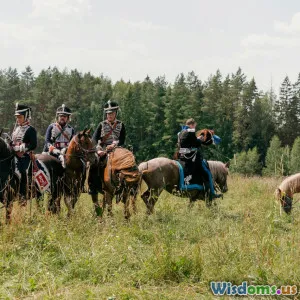
The Role of Secrecy in Cultural Evolution
7 min read Explore how secrecy shapes cultural evolution and the hidden dynamics within organizations and societies. (0 Reviews)
The Role of Secrecy in Cultural Evolution
Secrecy, a concept as old as human civilization itself, has long fascinated historians, sociologists, and anthropologists alike. It plays a surprisingly profound and complex role in shaping culture—a force that catalyzes innovation, protects identity, and maintains social order. This article dives deep into the interplay between secrecy and cultural evolution, unveiling how confidential knowledge persists across generations, influences power dynamics, and even sparks transformative societal changes.
Introduction: The Enigma of Secrecy in Society
From whispered legends of secret societies to the guarded rites of ancient tribes, secrecy has always sparked intrigue and mystery. But beyond the curiosity it arouses, secrecy holds a pragmatic and potent function across cultures. It governs what knowledge is shared or concealed, who accesses it, and how that differentiation molds social structures and cultural identities.
Secrecy’s influence transcends mere concealment; it nurtures power hierarchies, protects innovative ideas, fosters exclusive communities, and occasionally fuels conspiracy—real or imagined. By understanding its role in cultural evolution, we can better appreciate how societies preserve their heritage, adapt to change, and sometimes, innovate in quiet shadows.
Historical Foundations: Secrecy and Early Human Societies
In early human cultures, knowledge was an invaluable currency often shrouded in secrecy to safeguard survival. For example, indigenous tribes utilized secret rituals to pass down spiritual knowledge and medicinal remedies, accessible only to shamans or select initiates. The Pythagorean Brotherhood in ancient Greece maintained mystical doctrines and scientific principles under strict confidentiality, influencing Western thought while keeping their community’s identity intact.
Secrecy also defined power in Ancient Egypt where priesthoods concealed astronomical, architectural, and religious knowledge. This seclusion contributed both to the cohesion of religious institutions and the stability of governance by controlling how much the general populace could access certain truths.
Secrecy in Secret Societies: Catalysts of Cultural Continuity and Change
Secret societies serve as prime examples of how secrecy shapes culture directly. Organizations like the Freemasons, the Illuminati, or the Rosicrucians are often enveloped in speculation, yet their very existence underscores a deeper cultural function.
Preserving Knowledge
These organizations often safeguarded philosophical, scientific, or political knowledge that was forbidden or unavailable elsewhere. For instance, Masonic lodges in the Enlightenment period operated as hubs where progressive ideas about liberty, equality, and fraternity circulated under veil of secrecy, influencing social reforms.
Cultivating a Unique Identity and Social Cohesion
Membership involved rituals and symbols promoting solidarity and trust. This exclusivity fostered strong internal bonds and a sense of purpose distinct from mainstream society, which in turn affected broader cultural narratives about governance, morality, or spirituality.
Innovation within Secrecy
Secrecy allows inventions and radical ideas to incubate away from public scrutiny or censorship. The early development of cryptography, for example, was historically protected within splinter groups before becoming widespread public knowledge.
The Modern Context: Organizational Secrecy and Cultural Evolution
In contemporary settings, companies, governments, and research institutions frequently depend on secrecy to protect competitive advantage and state security.
Corporate Secrecy Driving Innovation
Tech giants like Apple and Google maintain rigorous secrecy about product development. The clandestine nature of their innovation processes enables them to protect intellectual property and surprise markets, accelerating the evolution of technology culture.
Governmental Secrecy and Cultural Narratives
State secrecy around military, intelligence, or diplomatic affairs shapes cultural perceptions and historical narratives. For example, Cold War secrecy influenced global culture by propagating fear, suspicion, and ideological identity.
Ethical Considerations and Transparency
While secrecy can preserve culture and innovation, it also introduces ethical dilemmas. Excessive secrecy may stifle accountability, breed mistrust, or perpetuate inequalities. Cultural evolution thus requires balancing openness and confidentiality.
Secrets as Cultural Glue: Identity and Social Boundaries
Secrecy creates socio-cultural boundaries delineating insiders from outsiders. Language, rituals, or traditions kept secret reinforce identity and community resilience.
Consider indigenous cultures that ceremony endures through orally transmitted secret knowledge—this preserves not only practice but distinct worldviews under threat from globalization. Similarly, minority religious sects often rely on secrecy to maintain beliefs and rituals.
Conclusion: Embracing Secrecy’s Dual Role in Culture
Secrecy, far from a mere cloak for deception, shapes the foundations of cultural evolution. It protects critical knowledge, enables innovative thinking, and fosters social cohesion within complex societies.
Understanding its nuanced role allows us to grasp how cultures evolve—balancing transparency and concealment to adapt, protect identity, and empower select groups.
As we navigate an era where information is simultaneously abundant and vulnerable, embracing the dual nature of secrecy can inform how societies manage knowledge respectfully, ethically, and effectively.
References & Further Reading
- Da Vinci, M., "The Role of Secret Knowledge in Renaissance Innovation." Journal of Cultural Studies, 2018.
- Secret Societies Unveiled: From the Freemasons to the Illuminati, Laura Knight-Jadczyk, 2012.
- "Corporate Secrets and Innovation," Harvard Business Review, 2021.
- Simmel, G., "The Sociology of Secrecy," in Social Theory Revisited, 1950.
By understanding these dynamics, readers gain fresh perspective on how secrecy entwines with power, progress, and identity throughout human history.
Rate the Post
User Reviews
Popular Posts





















